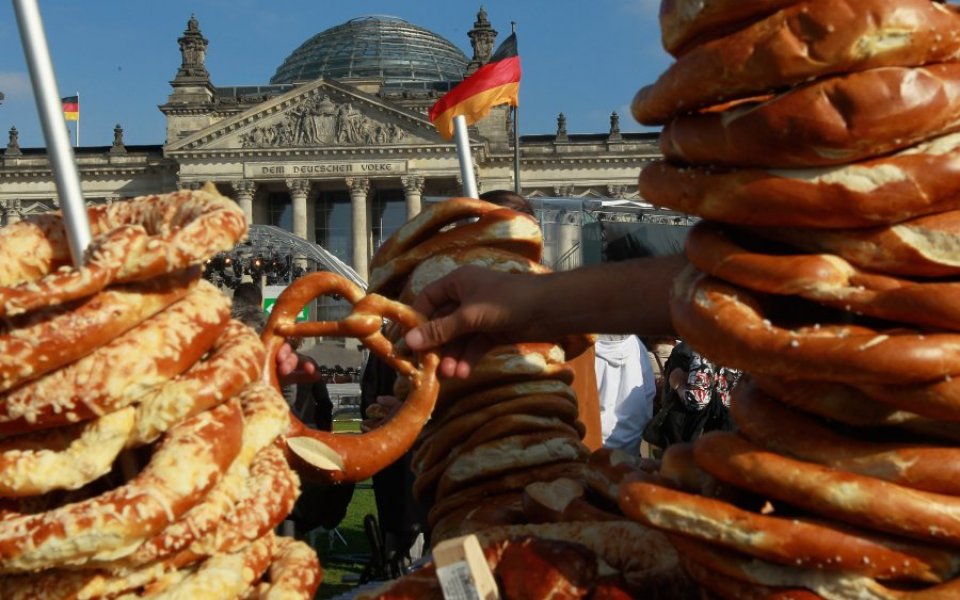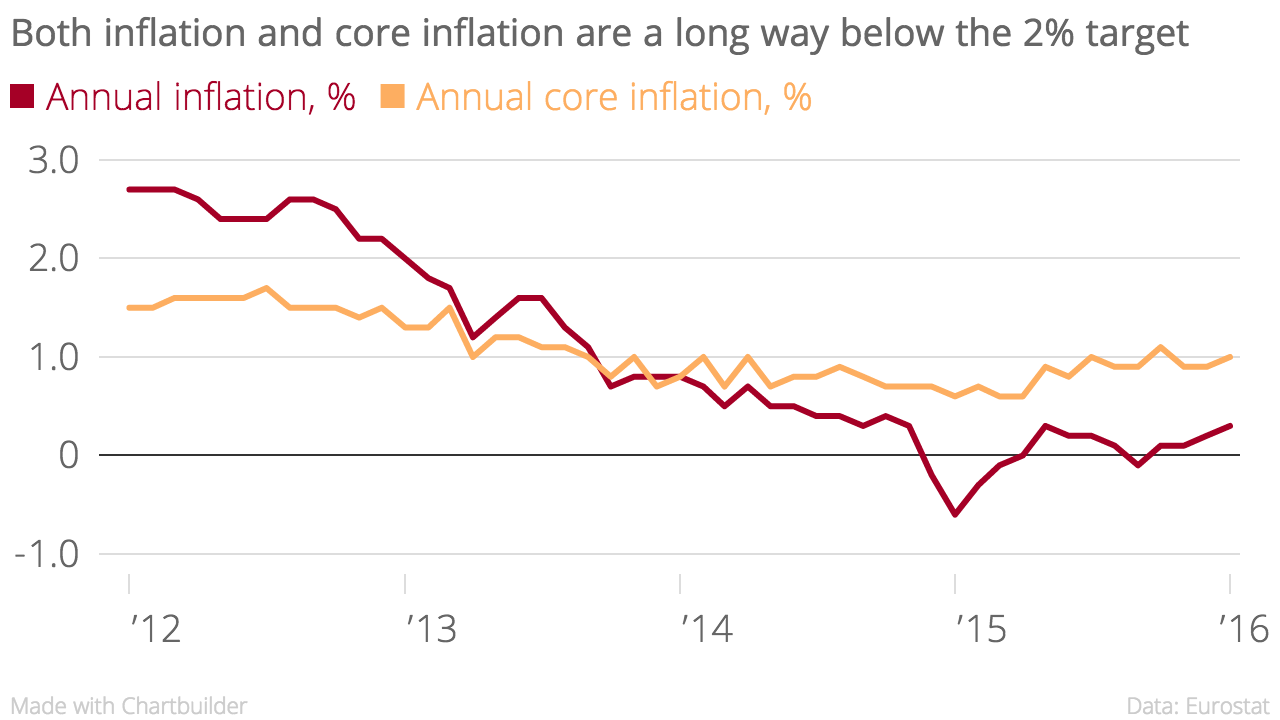Eurozone inflation edges up to eight-month high in January as impact from cheap oil starts to wear off

Eurozone inflation hit an eight-month high in January as the impact of cheaper oil prices began to wear off.
Annual price inflation hit 0.3 per cent, EU statistical office Eurostat said this morning. While the inflation reading was slightly lower than a previous estimate of 0.4 per cent, it is the highest annual price growth since May last year.
The inflation rate increased from December's 0.2 per cent due mainly to slower falls in energy prices – they were down 5.4 per cent in January compared with 5.8 per cent in December. It was partially offset by slower food inflation.
Core inflation, which strips out volatile food and energy prices, rose to one per cent from 0.9 per cent.
"The failure of inflation to pick up much pace reinforces our view that more stimulus is on its way," said economist Danaei Kyriakopoulou from the Centre for Economics and Business Research. The European Central Bank (ECB) is widely expected to cut the interest rate it pays on deposits further below zero in March. It could also ramp up its €60bn-a-month asset purchase programme. The ECB targets inflation at just below two per cent.
